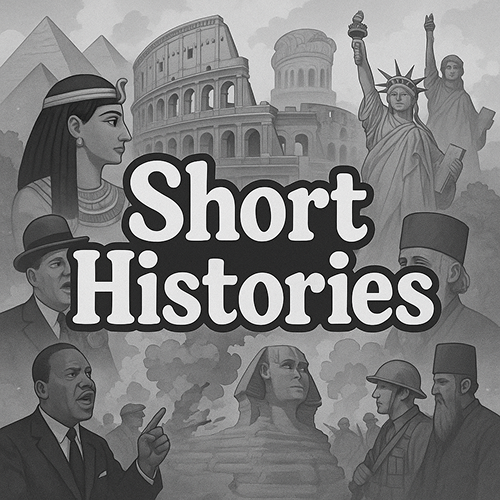By the early 19th century, the tide seemed to turn. The cries of abolitionists grew louder. Religious leaders, former slaves, and moral philosophers stirred governments into uneasy action. Britain outlawed the slave trade finally in 1807, America followed with its own ban in 1808, other European powers slowly followed suit. And yet… the ships sailed on.
Illegally, in shadows, beneath false flags. Across the Atlantic still they came, though fewer, more hidden, more violent. The profits were too high, the demand too great. Plantations in the Americas needed labor; kings in Africa sought weapons, rum, and gold. The human cargo trade persisted in whispers and blood for decades after it was declared “ended.” Even when the ships finally ceased, the legacy remained.
A New Kind of Chain: Emancipation, But Not Freedom
Abolition did not bring equality. Freed men and women found themselves shackled anew not with irons, but with laws, debt, and violence. In the Americas, the Caribbean, and parts of Africa, former slaves were denied land, education, and opportunity. Systems arose to trap them in poverty: sharecropping, segregation, indentured labor masquerading as contracts. Names changed, but oppression did not. Chains vanished from ankles only to appear in courtrooms, job markets, and ballot boxes.
In the United States, Jim Crow laws made sure Black citizens remained second-class. In Brazil, the last nation in the Americas to abolish slavery later in 1888, former slaves were dumped into poverty with no compensation, no aid. Across the Caribbean, former plantation owners pivoted to exploiting freed populations under different guises.
Slavery had been made illegal but Racism had been made law.
The Ghost in Modern Systems
The echoes of the trade stretch far beyond history books. Look closely: you’ll find them in the bones of modern finance, global trade, and industry. The wealth built from the Atlantic trade funded banks that still exist today, underwrote empires and erected cities. Insurance companies grew fat covering voyages of human cargo, ports became capitals and the infamous plantations became corporations.
Entire nations profited while others bled and the world we live in was bankrolled by the stolen bodies.
Look at maps; the borders drawn during the colonial Scramble for Africa still scar the continent. Nations divided for convenience, not culture. Tribes forced into artificial unions or bloody rivalries that linger today. These artificial unions planted seeds of conflict that grew into wars still burning today.
In the Democratic Republic of Congo (DRC), the echoes of colonial exploitation never faded. Belgium’s ruthless carve-up of Congolese lands ignored ethnic boundaries, lumping rival groups beneath one unstable flag. The consequences? Decades of war, militias vying for control, and one of the deadliest conflicts since World War II over minerals the modern world can’t seem to live without.
In Nigeria, the British amalgamation of 1914, orchestrated by Lord Lugard, forced together diverse peoples, Hausa-Fulani, Yoruba & Igbo with clashing religions, traditions, and political systems. The result was inevitable: mistrust, military coups, and in 1967, the Biafran War. Over a million died, not just from bullets, but from starvation and siege. To this day, the scars remain in movements calling for independence and autonomy, in politics still fractured by ethnic fault lines drawn over a century ago.
Across the rest of Africa, stories repeat: Rwanda’s genocide, inflamed by colonial classifications. Sudan’s split, born of borders drawn in ignorance of history. The chains of slavery morphed into the shackles of arbitrary nationhood. Wherever lines were drawn with rulers and ink, blood has often followed.
Languages, too, carry the ghost: Haitian Creole, Brazilian Portuguese, Jamaican Patois were all born in fire, chains, and survival. Even family trees bear marks: names given by owners, not ancestors. Histories erased and roots severed. Entire peoples taught to forget who they were before they were bought.
Resistance, Resilience, and Reckoning
Yet through all this, cultures survived, faiths adapted and music transformed pain into power. The blues, reggae, samba & gospel sounds born from shackles now echo worldwide. Names like Olaudah Equiano, Harriet Tubman, Frederick Douglass remind us that resistance was as much a part of this history as suffering.
Today’s movements for racial justice from Black Lives Matter (#BLM) to reparations debates are not new fights, they are chapters in a story centuries long. A story of people who refuse to let history’s crimes dictate their future.
Statues fall, streets are renamed and apologies are issued, sometimes. But still, the chains linger in disparities of wealth, opportunity, health, and justice. The world is freer than it was but not yet free enough.
A Legacy That Demands Remembrance
Three centuries. Twelve million lives stolen across the sea. That is the cold accounting but the true weight cannot be measured in numbers. It lives in every surname stripped and replaced.Every language lost, every tradition buried, every child born into chains and every grave unmarked beneath the sugarcane fields. It lives in the oceans still, restless with the bones of those who never reached the shores.
This is not ancient history, this is yesterday’s echo in today’s world. To understand the present, one must face the past. Not to dwell in guilt, but to honor the truth and build better.
Because chains, even when broken, leave scars.
Next Time: The Birth of the Internet Part One : The Cold War’s Accidental Invention
Before TikTok and memes, there was terror of missiles. The internet wasn’t born for fun, it was born to survive World War III.
Please go back to top & scroll gently

